Sarah Rainsford
BBC Eastern Europe correspondent

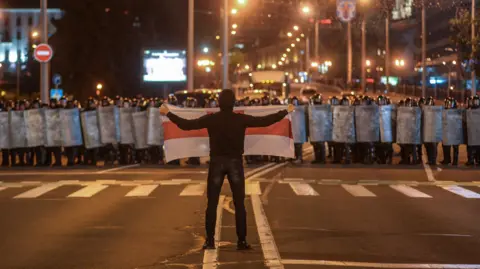 European Pressphoto Agency
European Pressphoto Agency
In 2020 hundreds of thousands of Belarusians took to the streets to protest. In 2025 demonstrations are unlikely
Svetlana Tikhanovskaya refuses to call what's happening this weekend in Belarus an election.
"It's a sham," the exiled opposition leader says. "This is a military-style operation; a performance staged by the regime to hold on to power."
For three decades, the country has been led by an increasingly authoritarian Alexander Lukashenko, now firmly backed by Vladimir Putin who makes use of his neighbour in his full-scale invasion of Ukraine.
This Sunday, Belarusians will see Lukashenko's name on the ballot paper once again, with four other names chosen carefully to be no challenge.
No independent observers are allowed.

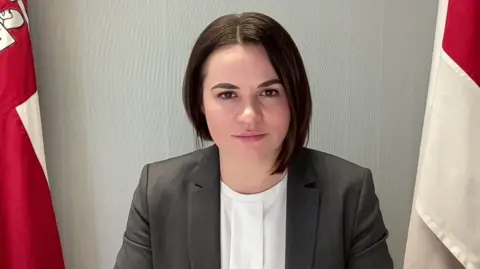
Despite being the regime's harshest critic, Svetlana Tikhanovskaya is not telling Belarusians to take to the streets
The tight controls have bene put in place because last time Belarusians voted for a president, the country was swept by giant protests.
In 2020, Alexander Lukashenko allowed Svetlana Tikhanovskaya to run against him, thinking that a political novice – and a woman – would make no impact.
It was a massive miscalculation.
Tikhanovskaya, who decided to stand in place of her husband after Lukashenko put him in jail, claimed victory.
When Lukashenko was awarded 80% of the vote, crowds took to the streets in the biggest ever threat to Lukashenko's rule. The protests were ultimately crushed by riot police with mass arrests and brute force.
The European Union then refused to recognise Lukashenko's legitimacy as president.
Today, all the key opposition figures from the period are in prison or have fled abroad, like Tikhanovskaya. Former protesters still in Belarus have been scared into silence.
So the opposition leader is not urging them to take to the streets again on Sunday.
"We call on Belarusians to reject this sham and on the international community to reject the result," she tells the BBC. "But I say to Belarusians, you have to keep safe until the real moment of possibility.
"Because people live in constant fear, and the regime is now intensifying the repression."

 Handout
Handout
Vet Yana Zhuravleva hopes to return to Belarus to be with her cats
You feel that fear straight away when you speak to Belarusians.
Many don't want to talk publicly about politics at all. Others ask you to change their names, then choose their words carefully.
Some still inside Belarus chat only via encrypted messages which they delete immediately.
All say open political activism in the country has been extinguished.
Bysol, a non-profit organisation which helps evacuate those in danger, reports a surge in applications to around 30 or 40 requests a month.
Since 2020, the group has evacuated more than 1,500 people.
It also supports former political prisoners trying to rebuild life in exile after their release.
For Yana Zhuravleva, a vet, that's been tough.
Prior to 2020 she was devoted to her work and not particularly politically active. But that summer she joined the giant crowds, hopeful of change.
She was later sentenced to three years for a "gross violation of public order".
"We would get punished for everything," she recalls of her time in prison.
She calculates that about 1 in 10 of the women were there because of the protests. Like them, Yana was added to the register of those "inclined to extremism and destructive activity".
"You can't go to the sports hall, your only letters are from relatives and you get fewer visiting rights. If you complain you always hear the same response: remember what you're here for," she tells me from Poland, where she moved after her recent release.
Yana admits it took "titanic" strength not to slide into deep depression.
"In prison, I barely cried. But when I was out, I suddenly wanted to sob all the time, and didn't know why."

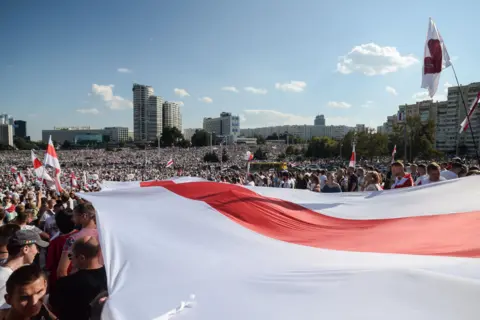 European Photopress Agency
European Photopress Agency
The mass protests in 2020 were followed by a brutal crackdown.
Several people I contacted have mentioned seeking psychological help, after being interrogated, threatened or imprisoned.
They describe a security service that hunts down anyone with the loosest link to the opposition, then demands names from all those it detains.
The pressure has never let up.
One woman inside Belarus, who used to monitor human rights, tells me she's had to stop attending court hearings because the authorities spotted her.
If they could prove any link to the banned human rights organisation Viasna, she could be charged as an "extremist".
"I can do some specific acts of support, but I have to be careful," she told me anonymously.
"You have a very strong sense of helplessness when you see all this injustice."
Viasna currently lists 1,256 political prisoners in Belarus. Dozens were given amnesties recently, but they were soon replaced.
For those who do escape the pressure-cooker of Belarus, there is the added struggle of knowing they may not return for a long time.
That's why Natalia, not her real name, decided to stay in Belarus even after she was detained twice for participating in the protests.
"You're very vulnerable once you're on the list of the 'repressed'," she explains.
"You can't get work because you are on the police data base and the authorities always have an eye on you..."
For Natalia that meant being arrested again, initially for walking her dog without a lead.
"They claimed I'd been aggressive and cursed loudly and waved my arms," she remembers, of her detention in 2023. She was held for ten days with up to 14 people in a cell for two, a light on constantly.
For over a week, she slept on the wooden floor.
"It really shook my sense of security, I became much more anxious," Natalia confides.
She's abroad for now and plans to return soon, to her cats. But her neighbours say a police officer just visited her house, checking up on all potential protesters ahead of Sunday's vote.

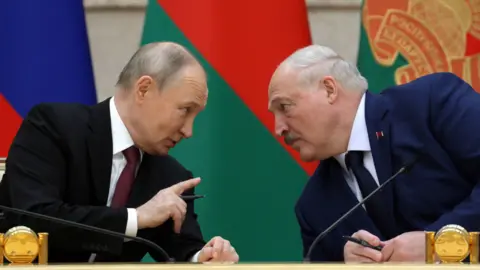 Reuters
Reuters
Russian missiles have been launched from Belarus into Ukraine
Svetlana Tikhanovskaya believes the ongoing repression shows that Lukashenko and his allies are afraid.
"The trauma of 2020 is still alive and he has to eliminate any possibility of uprising," the opposition leader argues.
"He knows the Belarusians didn't accept or forgive him, and they still want change."
But she admits there's little sign of that in the short-term.
For a time after Russia's full-scale invasion of Ukraine, Belarusians hoped their neighbours might succeed in defeating Putin with Western help, and that Lukashenko would follow him.
Some headed for the front line themselves, choosing force after their peaceful protests had failed.
But Ukraine's military is now struggling to hold ground and President Donald Trump is pushing for peace talks.
"The democratic world can't make concessions to Putin," Tikhanovskaya argues, describing Lukashenko as equally dangerous to the world.
He let Russia launch missiles at Ukraine from Belarus and send its tanks through his territory.
He's also allowed the free flow of migrants to the Polish border and into the EU.
"He allows Putin to deploy nuclear weapons and his army in Belarus, and it's a very short path to Poland and Lithuania," Tikhanovskaya points out.
"He and Putin are a pair, and they support other dictators. He's part of this chain of evil."
There is little doubt that Sunday's reinstatement of Alexander Lukashenko will go according to his plan.
"Those people are very capable," explains Yana, the former political prisoner.
"They really did crush the potential for protest."
She's now trying to return to her profession as a vet, but in Poland, and to recover from three tough years behind bars.
Those I spoke to now see Lukashenko retiring, or eventually dying, as their greatest hope of seeing democracy.
In the meantime, many are switching focus: there's been a surge of interest in reviving the Belarusian culture and language, an opposition cause. It's the most many dare do in such circumstances.
"No-one says it openly, but we feel like there are no prospects. There's depression," Natalia admits.
But there are no obvious regrets, even so.
Svetlana Tikhanovskaya's own life has changed dramatically since she was thrust into politics.
Cut-off from her country, her husband is also a political prisoner – kept in total isolation for almost two years.
The opposition leader insists she still "truly believes" in change.
"2020 was a huge shift in mentality in Belarus. I don't know how long it will take, but that shift will not disappear."

 2 days ago
2
2 days ago
2
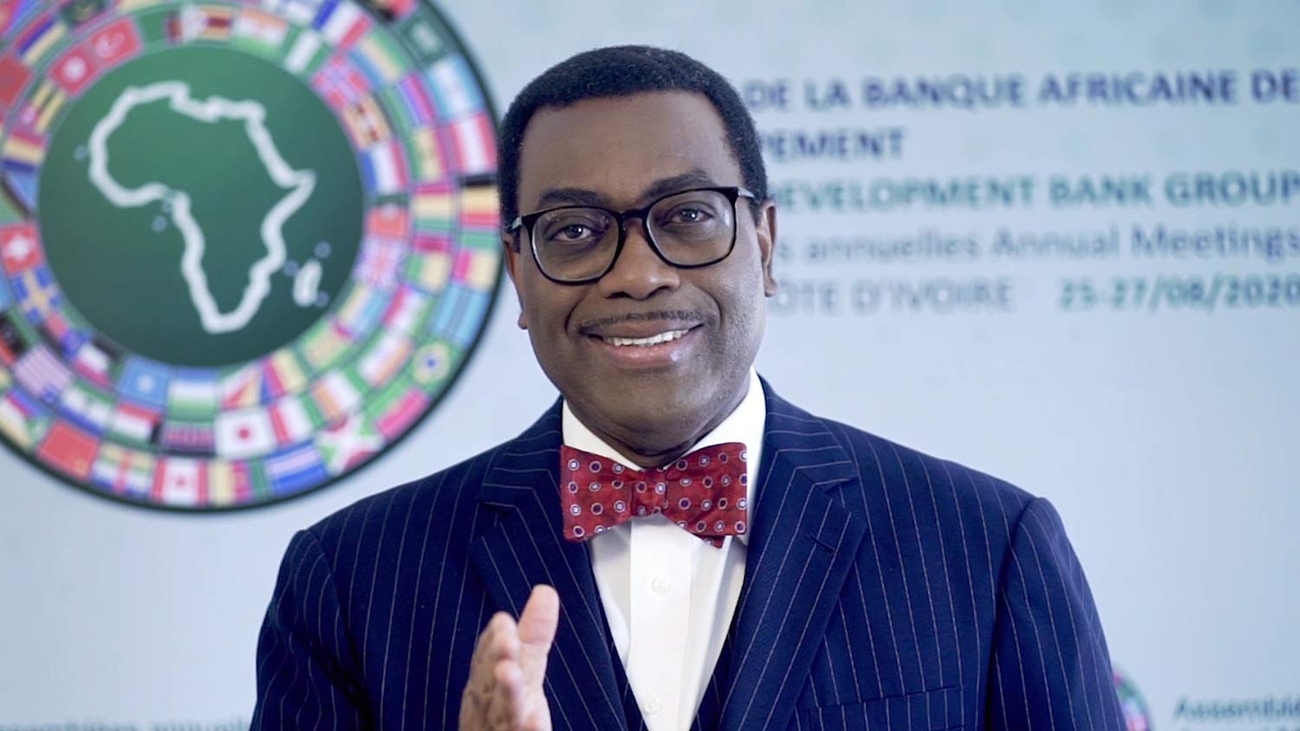

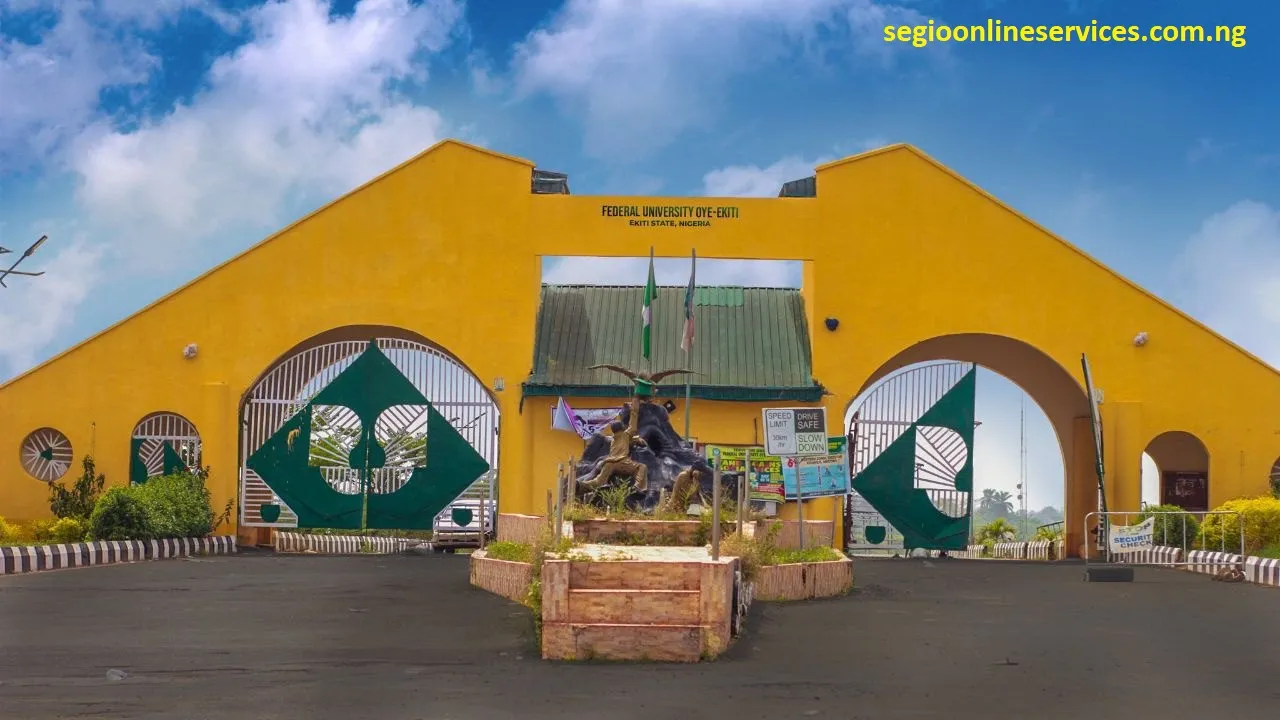
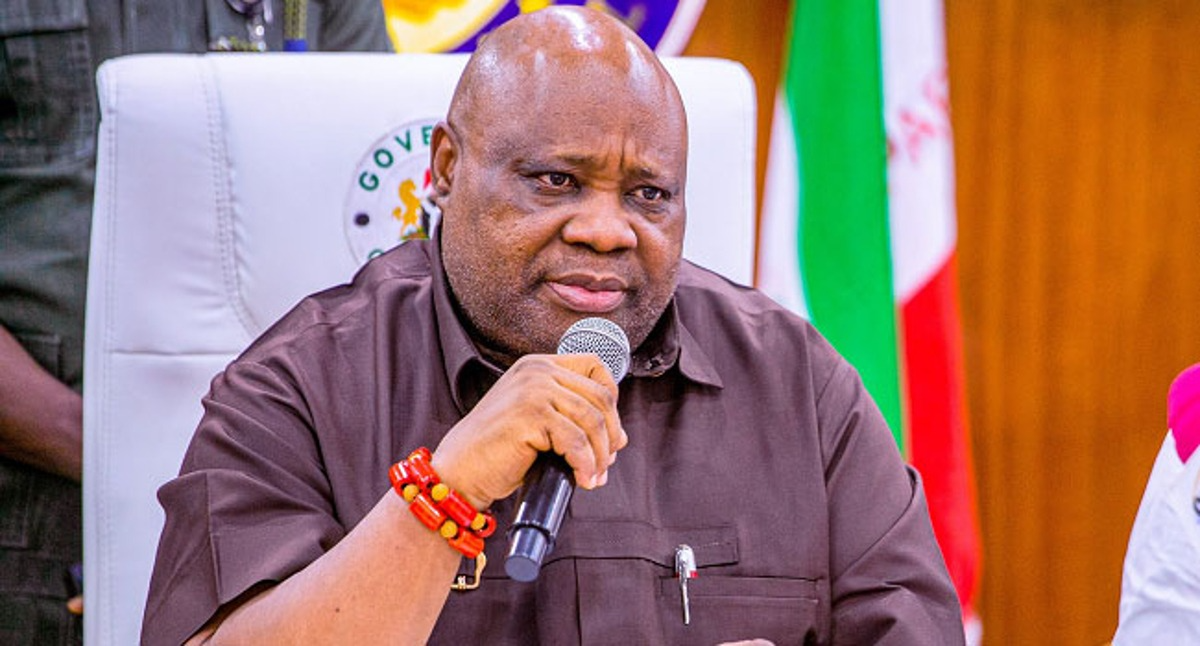



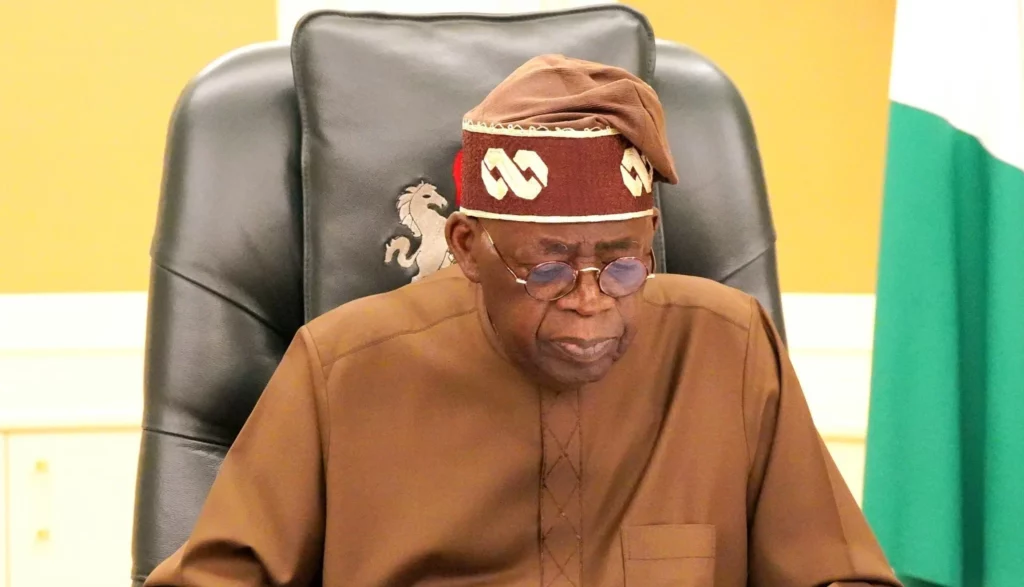




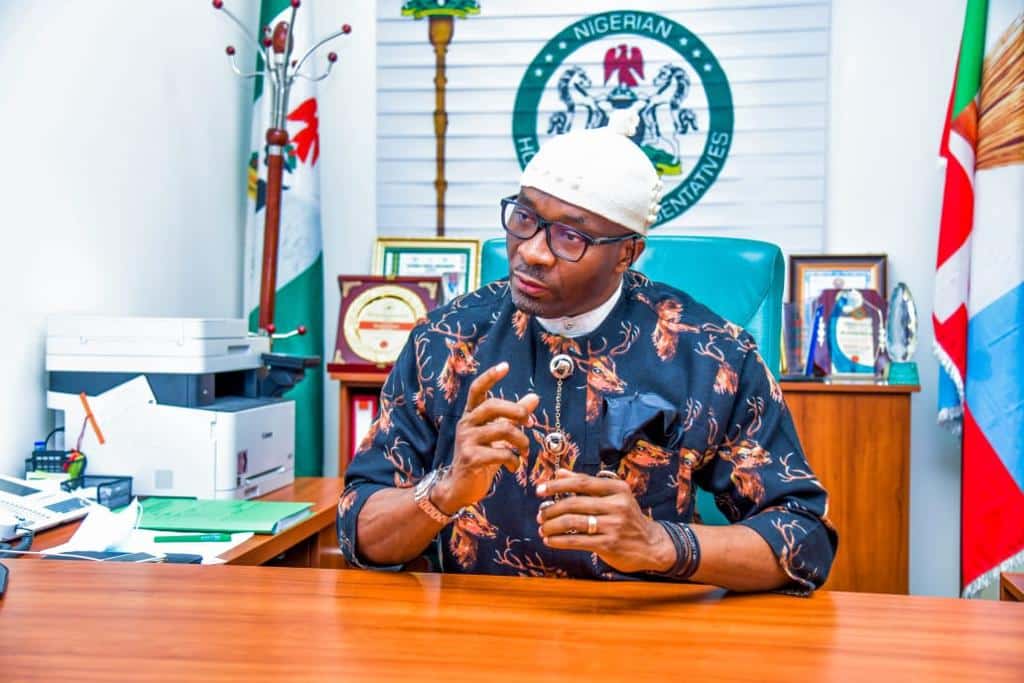


 English (US) ·
English (US) ·